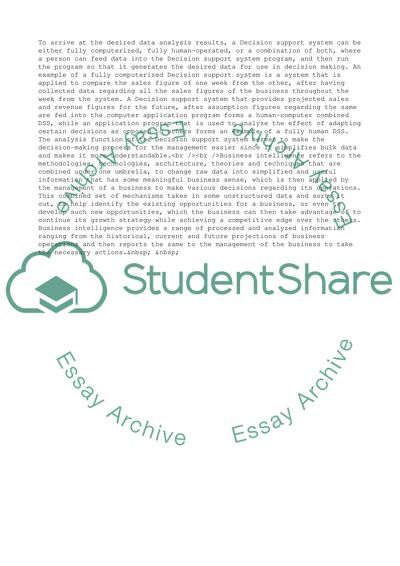Cite this document
(Decision Support System and Business Intelligence Essay, n.d.)
Decision Support System and Business Intelligence Essay. https://studentshare.org/business/1808944-exam-decision-support-system-and-business-intelligence
Decision Support System and Business Intelligence Essay. https://studentshare.org/business/1808944-exam-decision-support-system-and-business-intelligence
(Decision Support System and Business Intelligence Essay)
Decision Support System and Business Intelligence Essay. https://studentshare.org/business/1808944-exam-decision-support-system-and-business-intelligence.
Decision Support System and Business Intelligence Essay. https://studentshare.org/business/1808944-exam-decision-support-system-and-business-intelligence.
“Decision Support System and Business Intelligence Essay”. https://studentshare.org/business/1808944-exam-decision-support-system-and-business-intelligence.


